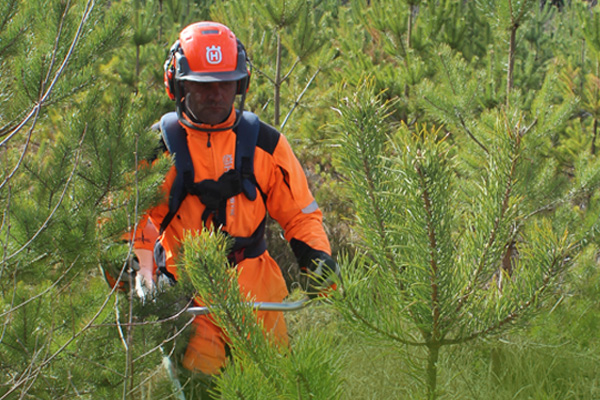LVM Announces a Tender for Forestry Works
To ensure timely and high-quality forest tending and restoration, JSC “Latvia's State Forests” (LVM) announces an open tender for forest planting, maintenance of young stands, agro–technical tending and protection of restored areas in 2021–2023. The tender is open to workers with or without forestry experience. Proposals should be submitted in the Electronic Procurement System (EIS) by 22 September; 12.00.
“We cooperate with responsible workers who wish to work and grow professionally. We are pleased that we have acquired reliable and knowledgeable cooperation partners in the regions of Latvia, who apply for forestry work every year. For the majority of these people, work in the forest is a permanent source of income, but for others – an opportunity to earn additional income,” says Lauris Ropājs, LVM Forestry Quality Manager.
Interested contractors are offered to enter into a one- or three-year contract for forestry works in an area of 94 325 hectares. Within the framework of the tender, it is planned to perform six types of forestry works: forest planting in an area of 7 950 ha; replenishment of restored forest areas in an area of 2 410 ha; agro–technical tending of restored forest areas in an area of 26 985 ha; tending of young stands in an area of 30 445 ha; protection of restored forest areas in an area of 17 620 ha; protection of young trunks in an area of 8 915 ha.
Thanks to forest maintenance works, LVM offers additional job opportunities for local residents in the regions. These are both seasonal jobs that can be planned by contractors in parallel with their daily work, as well as various permanent jobs. A brush cutter and chainsaw operator's certificate are required for agro–technical and young stand tending works.
Detailed planning and sequential work are a must to create the most suitable growing conditions for stands. Depending on the growing conditions, an appropriate tree species is planted and care is taken depending on the average tree height of the dominant tree species. Timely tending of young stands reduces the risk of possible damage caused by wind, snow and insects.
Animals that are found in Latvian forests use young trees as feed, and in order to avoid possible damage, it is necessary to use various means of protection. Protection work requires responsible workers who are knowledgeable or willing to acquire new skills.



